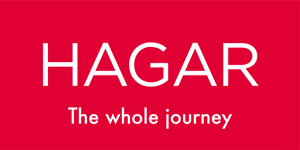As Myanmar transited from military-governed isolation to democratic rule in 2011, the country is projected to enjoy robust economic development and business growth. Unfortunately, the flip side of the rapid democratic and economic reform, is a significant increase in the vulnerable groups being left marginalised as the population struggles to keep up with the progress.

Both local and international companies have taken advantage of the host of opportunities in the country’s opening economy, creating a surge in demand for labour, and many of the impoverished families are putting even their kids to work to make ends meet.
Notably, such a prolific transition and rapid development have historically ushered in turbulent periods of social, political, economic and cultural change, engendering both significant opportunities and risks; humanitarian and economic effects.
According to the UNHRC, there are 1.5 million internally displaced persons in 2016, an astonishing figure that has more than quadrupled over the last 5 years![1] Almost two-thirds are people without citizenship in Rakhine State (source: UNHCR’s Myanmar fact sheet). Thailand has been a major destination country for asylum seekers and refugees from Myanmar and an estimated 110,000 people live in the refugee camps along the 2 countries’ borders. The movement of refugees is extremely limited and for those who want to earn money, they are highly susceptible to human trafficking for exploitative purposes.
Many Burmese migrate for work abroad and find themselves subjected to forced labour or sex trafficking. Men are subjected to forced labour in fishing and other labour-intensive industries while women and girls are primarily subjected to sex trafficking, domestic servitude or forced labour in garment manufacturing (source: USTIP Report 2017 Burma Country Narrative).
Less than a quarter of youths and adults have completed secondary education and at least a quarter of the younger kids in primary school drop out without completing their primary education. Instead of going to school, 1 in 5 are trapped in the country’s illegal labour market, where many employers turn to torture-like techniques to teach their prepubescent workers, as young as five years old, a lesson. These punishments for minor errors could range from hot iron scorches to hot water drenches and even scissor-slashing.[2]
With strong experience demonstrated through our work in post-conflict countries undergoing comparable rapid transitions, HAGAR is responding to the distress signals in Myanmar. With holistic recovery responses targeted at especially vulnerable groups including internally-displaced persons, child labourers, survivors of trafficking and gender-based violence, our goal is to help them achieve economic independence in the long run.
The multi-faceted approach includes legal aid and protection services, trauma recovery, healthcare, education and economic skills training. An effective strategy would require a network of strong partnerships, locally and regionally, amongst the government, law enforcement agencies, and other aid agencies.
Through advocacy efforts, HAGAR also hopes to influence policy makers to advocate change as the country develops. The lack of regulation is also an exacerbating factor in the inhumane labour that many are subjected to. Factory and General Labour Law Inspection Department does its part to caution errant employers of the nation’s stand on child labour – that it prohibits it. Yet many employers have found ways to evade detection. In addition, under the law, inspectors can only inspect factories and workplaces, leaving the agricultural sector fair play for child labour.
As we continue to plough through the plans and the work in Myanmar, there is an increasing need to empower the locals with knowledge and skills so they can help their own people – a more effective approach that is likely to yield lasting outcomes.
If the future of Myanmar holds dear to your heart, we hope you will respond by making a donation towards some of the most vulnerable Myanmarese groups. With just $50 a month, you could lift someone out of poverty, enabling them to achieve their highest potential to live a productive life that will in turn, create a positive impact on others.
———————
[1] UNHCR reported 339,200 internally displaced persons in 2011.
[2] See article by CNA at https://www.channelnewsasia.com/news/cnainsider/illegal-child-labour-underage-myanmar-laws-9864272
Empower A Survivor
Donate Now
Provide them with the necessary protection, literacy and skills to start a whole new life.
Empower a Survivor
Donate Now
Provide them with the necessary protection, literacy and skills to start a whole new life.
